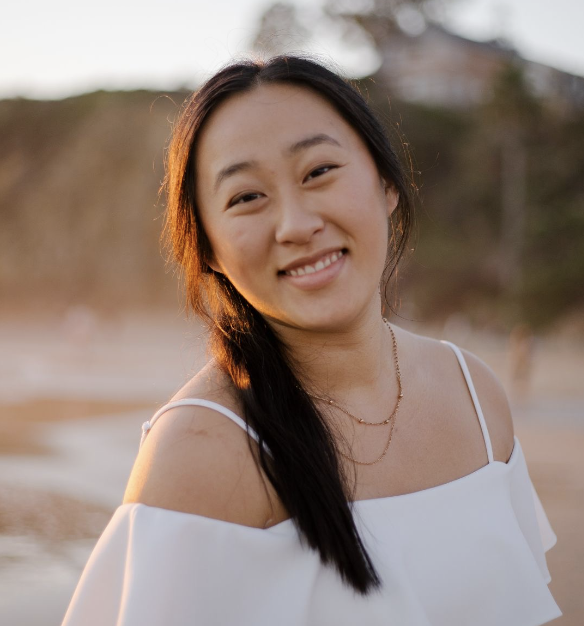
Julia Wang (she/her) is a senior in Berkeley College from Tustin, California, majoring in MCDB. She is proudly premed, and she is earning her Education Studies certificate on the Intensive Scholars track. Julia first fell in love with the Education Studies program when she explored Yale as a high school senior during Bulldog Days. While she had always liked teaching, Julia found herself surprised—and quite pleased—to learn that “there was this whole other sphere of academia that was teaching and learning” to explore.
Back in high school, Julia founded a nonprofit summer camp, which she called “The STEAM Machine” (@thesteamachine on Instagram). She spoke humorously and fondly of her old obsession with the Percy Jackson series, which inspired her STEM-themed, Camp Halfblood-like summer camp. Now, The STEAM Machine’s main programming is called Avengers Academy, which breaks down, as she describes it, “the STEM of being an avenger.” “It’s not so much about the content, it’s about the process,” Julia says. “That ethos takes me through a lot of my outlook on teaching and learning in general. I do believe that learning should be enjoyable—and is, for a lot of people at Yale, because we’ve been afforded a lot of opportunities for people to show us that. But that definitely isn’t true for people across the country or around the world.”
Reflecting on Ed Studies, Julia is glad to have gotten to know “people who have very different academic backgrounds and personal and academic interests… And we all are sort of united in this interest of teaching and learning and education.” Her favorite EDST class has been Educational Design, a class co-taught by Professor Richard Lemons and Hartford Public Schools Superintendent Leslie Torres-Rodriguez. “I appreciated how practical it was,” she recalled. “It really was rooted in applying design thinking principles to education, and what actual, practical problem-solving looks like from a district perspective.”
Honing in on her interests in anti-racist and equity-centered STEM education, Julia has even contributed to Dr. Debs’ EDST 110 syllabus, with the book Braiding Sweetgrass by Robin Wall Kimmerer. “This is perhaps melodramatic,” she hedges, “but it highkey changed my life.” As someone who often asks herself the questions, “How do we increase representation and equity in STEM education? Or in medicine, or in medical school?”, Julia felt that this book helped her to further explore the intersections of Western science and Indigenous science. It exposed her to, as she puts it, “the ways that Western science has a lot of shortcomings, and the ways that alternative ways of knowing can support those shortcomings.”
Julia hopes to apply equity and design-thinking frameworks and principles to her medical—and teaching—practices someday. She hopes to take two gap years before medical school, then complete her residency and become an attending physician, ideally all back home in California. “The intersections of education and healthcare are numerous,” Julia states, “and I hope I’m still thinking about all of that [in ten years].” Now, in her final year at Yale, Julia hopes that students interested in studying education, or institutions and structural issues in the United States, turn to Ed Studies like she did. “Education Studies is a great way to do that, where you feel supported by professors and in a community that is really lovely. If you’re interested in structural inequities, it’s a great place to start. And it’s translational to other types of systems in the U.S.”